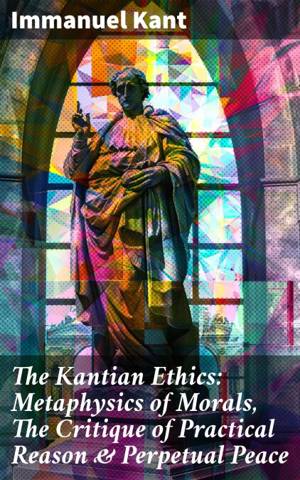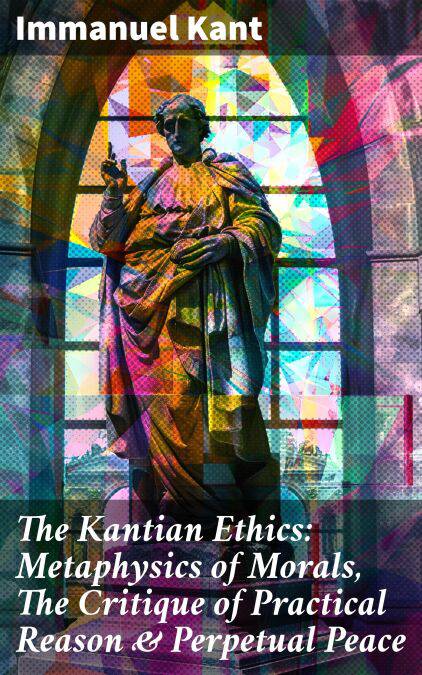
Bedankt voor het vertrouwen het afgelopen jaar! Om jou te bedanken bieden we GRATIS verzending (in België) aan op alles gedurende de hele maand januari.
- Afhalen na 1 uur in een winkel met voorraad
- Gratis thuislevering in België vanaf € 30
- Ruim aanbod met 7 miljoen producten
Bedankt voor het vertrouwen het afgelopen jaar! Om jou te bedanken bieden we GRATIS verzending (in België) aan op alles gedurende de hele maand januari.
- Afhalen na 1 uur in een winkel met voorraad
- Gratis thuislevering in België vanaf € 30
- Ruim aanbod met 7 miljoen producten
Zoeken
The Kantian Ethics: Metaphysics of Morals, The Critique of Practical Reason & Perpetual Peace E-BOOK
Exploring the Moral Foundations of Reason and Autonomy
Immanuel Kant
E-book | Engels
€ 0,49
Uitvoering
Omschrijving
Immanuel Kant'Äôs "The Kantian Ethics: Metaphysics of Morals, The Critique of Practical Reason & Perpetual Peace" intricately weaves together the foundational principles of his moral philosophy. Kant's works present a rigorous exploration of normative ethics grounded in the notions of duty and the categorical imperative, prompting readers to consider moral law as inherently universal and absolute. Through meticulous argumentation, he critiques prior ethical systems, establishing a unique moral framework that fosters autonomy and rationality, while also envisioning a path to everlasting peace through moral governance in international relations, as articulated in "Perpetual Peace." Kant, a luminary of the Enlightenment and a pivotal figure in modern philosophy, was profoundly influenced by the tumultuous sociopolitical landscape of 18th-century Europe. His background in rationalist and empiricist traditions informed his critical approach, enabling him to challenge prevailing ethical doctrines and articulate a novel conception of moral obligation. His commitment to reason, autonomy, and universal ethics mirrors his lifelong pursuit of knowledge and enlightenment, often reflecting on the human condition and society's moral progress. This compilation is essential for scholars and students of philosophy, as it not only elucidates Kant's ethico-political theories but also inspires contemporary ethical discourse. Readers seeking a transformative understanding of moral reasoning are encouraged to engage with Kant's profound insights, which remain relevant in navigating ethical dilemmas today.
Specificaties
Betrokkenen
- Auteur(s):
- Vertaler(s):
- Uitgeverij:
Inhoud
- Aantal bladzijden:
- 805
- Taal:
- Engels
Eigenschappen
- Productcode (EAN):
- 8596547680260
- Verschijningsdatum:
- 27/11/2023
- Uitvoering:
- E-book
- Beveiligd met:
- Digital watermarking
- Formaat:
- ePub

Alleen bij Standaard Boekhandel
Beoordelingen
We publiceren alleen reviews die voldoen aan de voorwaarden voor reviews. Bekijk onze voorwaarden voor reviews.









